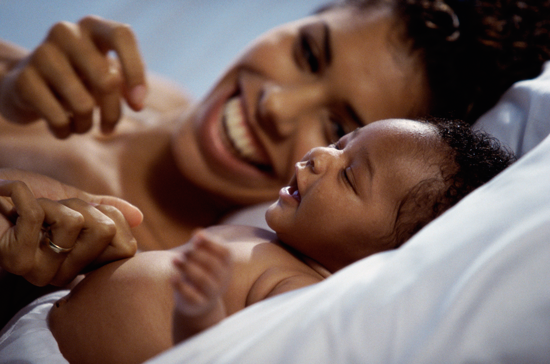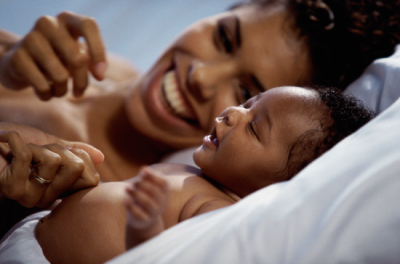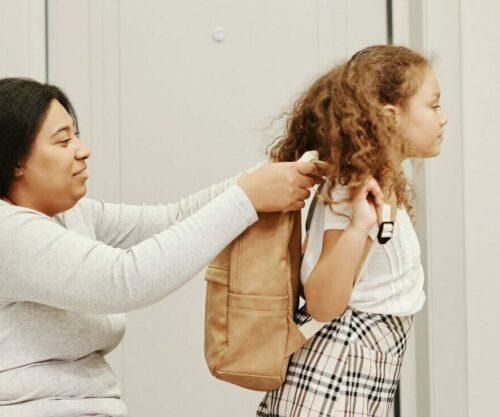
Every new mom faces a list of daunting tasks when she gets her newborn baby home. The first bath, first feed, first pooey nappy, first night at home. To help you cope, here are some of your most common questions answered.
Q: I’m seven months pregnant and have just found out I will need to take care of my baby’s umbilical cord after birth. I’m really nervous and don’t know what to do. Help! Pumi, Gauteng
A: You’re not alone, and believe me, taking care of baby’s umbilical cord can definitely be scary for a new mom.
According to Angela Russell, a registered nurse and midwife, and Senior Brand Manager of Huggies®, expect your baby’s umbilical cord stump to fall off within about two weeks after birth, changing from yellowish green to brown to black as it dries out.
“It is important to clean the cord with surgical spirits every time you change baby’s nappy. Surgical spirits can be applied with a cotton bud to clean the base of the cord where the separation will finally occur. And even once the cord has dropped off, it’s essential to keep cleaning the area until it is clean and dry,” says Angela.
The stump should always be kept dry, and for first-time moms Huggies® My First Nappy is just the answer as it features an umbilical cord cut-out to allow this area to be exposed to the air which helps to dry out the base of the stump.
Q: What do I need to know about my baby’s first poo? Surely if my baby hasn’t eaten anything yet, then how can it poo? And will a breastfed baby’s poo be different to that of a formula-fed baby? Thandi, Bloemfontein
A: What to expect regarding baby’s bowel movements is another challenge for the first-time mom. The first bowel movement is called meconium (the waste collected in the bowels while baby was in your womb), is blackish-green in colour and has a sticky consistency, and is usually passed within the first 24 hours but can take up to 72 hours to be fully excreted.
“Once this is passed, breastfed babies will have bowel movements that are loose, bright yellow, with an inoffensive smell. These babies may have anything between eight and 10 bowel movements a day, or may only have one bowel movement every two to three days. No two babies are the same. The bowel movements of formula-fed babies will appear lighter in colour, semi-formed and will have a stronger smell. They can have between four and six bowel movements each day,” says Angela.
Q: Babies are so small and fragile, I’m scared I won’t know how to hold my baby so that I don’t hurt her. What advice can you give me? Nomusa, Ladysmith
A: Holding your newborn baby for the first time can be both very exciting and frightening. You’ll be picking up and holding your baby a lot, so within a couple of days you’ll be an expert.
Always support your baby’s head and neck as newborn babies do not have strong control over their neck muscles. Something else that is also just as important is the fact that your baby’s head is very vulnerable, especially around the fontanelles, the “soft spots” on the top of her head. During birth the fontanelles enable the bony plates of the skull to “bend”, allowing your baby’s head to pass through the birth canal. By about 18 months the bone would have closed and hardened.
When lifting your baby, support her head by sliding one hand under her head and placing your other hand under her bottom, providing adequate support for your little one’s body. Once your baby is securely in your arms, bring her close against your chest. This makes your baby feel secure.
Q: Disposable nappies are a great convenience these days, but I want to know I’m getting the best my money can buy. What should I consider when buying disposable nappies? Ntokozo, Pretoria
A: We all have different standards and different priorities, so what suits one person may not suit another. Basically, there are three key issues to consider when choosing disposable nappies. Absorbency, size and fit. A disposable nappy must be able to absorb wee and keep it away from baby’s skin to prevent skin irritation and nappy rash; be available in sizes to suit babies of all ages; and have tabs to make the nappy fit snugly. Cost is also a consideration, but when a nappy gives you peace of mind that your baby is being well cared for, isn’t it worth it?





